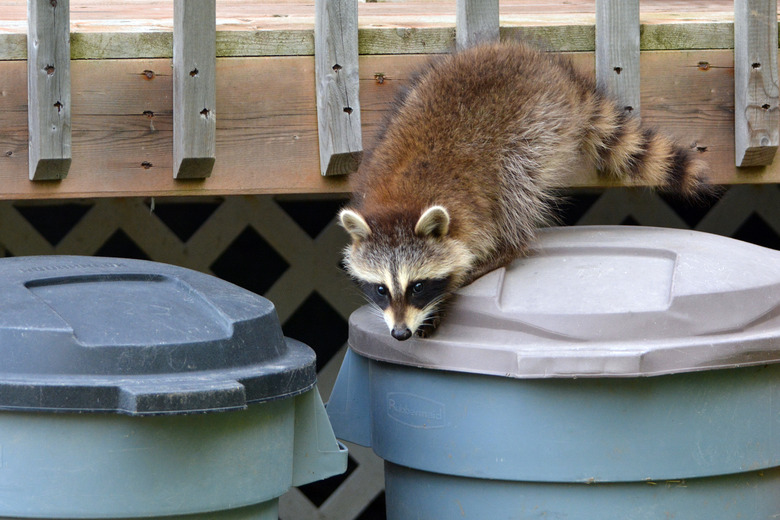Moth Balls As A Raccoon Repellent
We may receive a commission on purchases made from links.
They're cute in pictures, but in real life, you don't want to see raccoons anywhere near your property. The best you can hope for is that they'll only get into your trash or dig unsightly holes in your grass. At worst, they can cause extensive property damage, get into your home, or infect humans and pets with disease. Keeping them away from your yard and home is obviously ideal. Moth balls are just one natural repellent homeowners sometimes try, but it's not a good solution.
Do Moth Balls Work?
Do Moth Balls Work?
Generations of people have tried using moth balls as a deterrent to more than just moths. Some use moth balls as spider repellent in basements or out-of-reach cabinets or use them to try to repel mice, squirrels, and other rodents. The strong smell of moth balls is supposed to keep critters away.
But because moth balls are made with chemicals that can be dangerous to people and pets, this isn't a safe way to manage a raccoon problem. This home remedy was popular before people understood the dangers of extended exposure to pesticides. Plus, there's no conclusive evidence proving that using moth balls or other unpleasant scents like ammonia is effective at keeping raccoons away. Use other methods to repel raccoons either outside or inside your home.
Deterring Raccoons Outdoors
Deterring Raccoons Outdoors
Raccoons are often drawn to a home by food — and they have a broad definition of what constitutes food. They'll happily eat trash, pet food, bird seed, and nearly anything you might be growing in your garden. They're also attracted by water sources like pools, ponds, bird baths, or pets' water bowls. Naturally, removing access to any food or water is an important preventive step for keeping raccoons out. Cover any water sources at night and use trash can locks to secure the lids on any bins that hold trash or other material raccoons might eat.
They're nocturnal and feel most comfortable rummaging around in the dark and quiet, so one way to deter raccoons from digging in your yard is to use light and sound to make the yard less inviting for these pests. Keep exterior lights on overnight or use solar-powered predator lights to brighten areas where you've seen signs of raccoon activity. Set up a speaker or radio to play music or white noise overnight. These steps may be enough to encourage raccoons to move on to a different yard.
Dealing With Raccoons in Your Home
Dealing With Raccoons in Your Home
Mother raccoons may get into or under a home when they're nesting and caring for their babies. Once raccoons have made their way into or under your home, it's generally advisable to call in a professional. Trying to get rid of raccoons under your house or in the attic on your own might work, but it could also backfire if you get injured or unknowingly remove a mother from your home but leave her babies behind.
A wildlife control professional can evaluate how many animals are living in your home and then use traps or other methods to evict them. One strategy involves temporarily installing one-way doors that let the critters escape to find food but don't let them get back inside. This is only advisable if you're confident there are no babies inside or they're old enough to follow the mother out through the door, which is why this removal method is best left to a pro. They can also evaluate the extent of any damage done by the animals; if raccoons left waste there, you'll need to thoroughly clean the area or hire a professional service to do it.
Once raccoons have been removed, immediately seal up the holes that allowed them to get inside with sturdy wire mesh until you can make a permanent repair. A wildlife control service may handle this for you. If raccoons have gotten into your attic, a professional needs to search your roof for any gaps.
References
- Smith's Pest Management: How to Get Rid of Raccoons: A Complete Guide [2021]
- Apple Pest Control: 4 Natural Raccoon Deterrents
- Anderson Wildlife Control, LLC: How Do Raccoons Get Into Attics?
- Humane Society of the United States: Getting Raccoons Out (and Keeping Them Out)
- Terminix: The Realities of Getting Rid of Raccoons With Ammonia
- National Pesticide Information Center: Can I Use Mothballs to Repel Insects or Animals?
